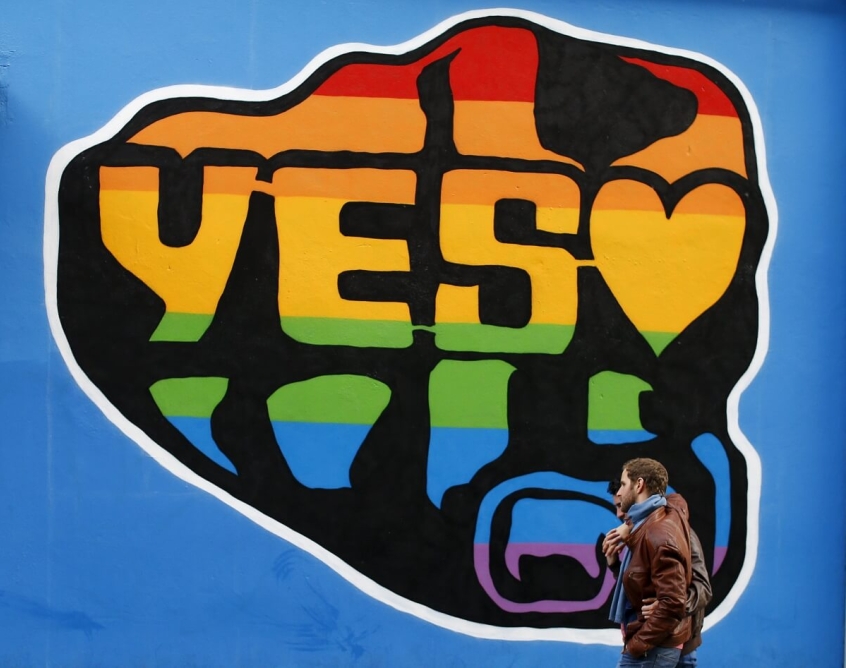
Ireland has voted resoundingly in favour of same-sex marriage. There are three notable – and rather heartening – things to notice about this 'social revolution', as it has rightly been called.
First, it was the result of a referendum. In the UK, the failure of the government to ask the electorate what it wanted and to ensure that the arguments for and against same-sex marriage left a lasting sense of grievance among conservative Christians, many of whom were strongly opposed to it. There was a sense that they were not listened to, and that a politically correct Westminster elite had wished on them something they hadn't voted for. In fact it is pretty certain that a vote in the UK would have gone in favour, but that's not the point: we weren't asked. Ireland did it the right way, and no one can complain. That's a lesson – too late – for our own politicians, and a lesson to the US, where rancorous and extremist language attends bitter and expensive lawsuits.
Second, the Church kept its tone fairly reasonable. It did not prophesy the end of civilisation, it did not generally threaten hellfire and damnation to those who voted in favour, and it has so far accepted the result with good grace. The words of Fr Seamus Aherne, who opposes same-sex marriage, ought to be widely shared: "The sun still shines. The rain still comes. We all go about our business. We make our arguments and then accept what happens. No one has died. It isn't the death of life or family or marriage as we know it."
Third, this humility in the face of the inevitable allows the Church to begin the slow task of cultivating faith in the Irish people again. The 'yes' vote has been driven, as Fr Aherne points out, by a strong emotional commitment to equality. It has also been driven by a rejection of what was believed to be the Church's intolerance and judgmentalism. If the Church can continue to show that it understands that it's no longer the master but the servant, that it is there to show people the love of Christ no matter what their sexual orientation, and that its priests are men of God who seek only to serve, it will do well. Ireland's religion will not be the same again, but God is still at work.
In both Ireland and the UK, the introduction of same-sex marriage presents very difficult questions for the Churches. For some, there are 'red lines' which make compromise of any kind unacceptable; for others, not so much. But it is worth saying that for most people it is the personal challenges of marriage itself that are hard enough. Divorce, with the associated emotional price paid by the couple themselves and by any children they may have, is one of the scourges of modern society. A refocusing of campaigning energy, from preventing a particular form of marriage to preventing large numbers of divorces, would be very welcome.













